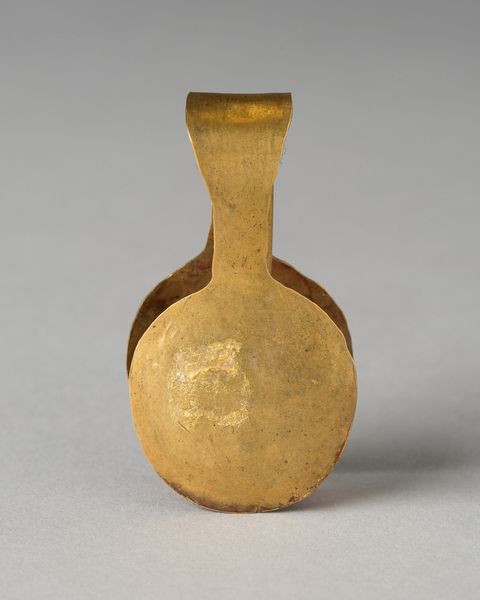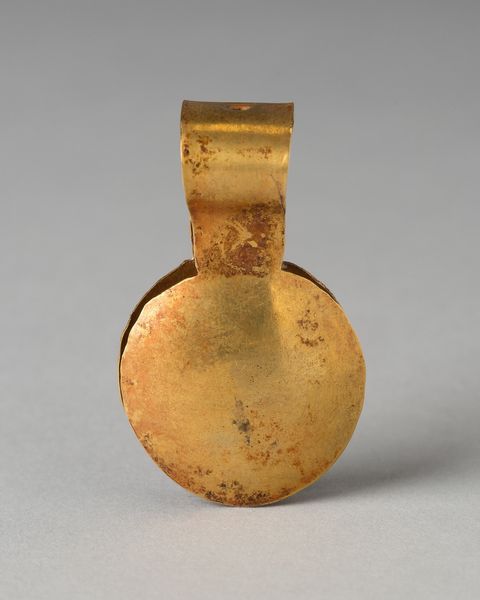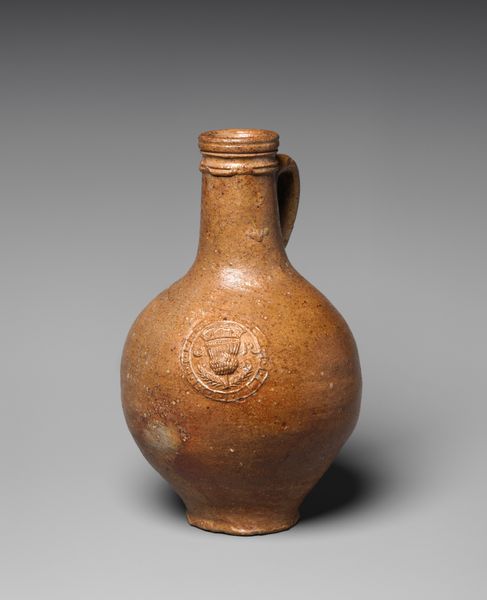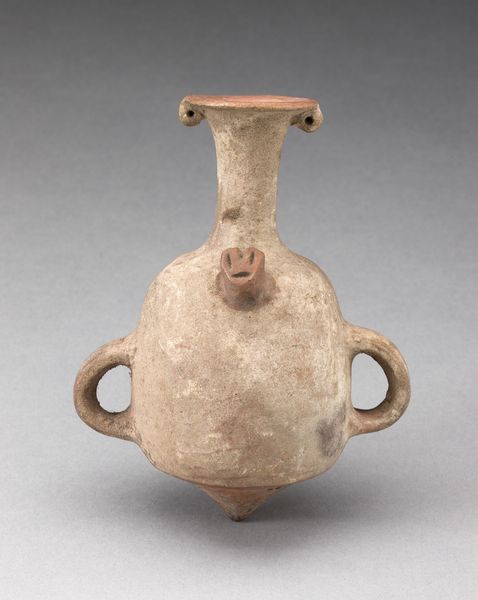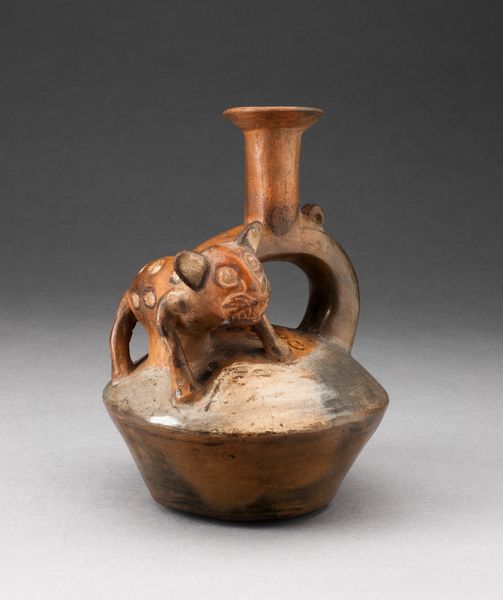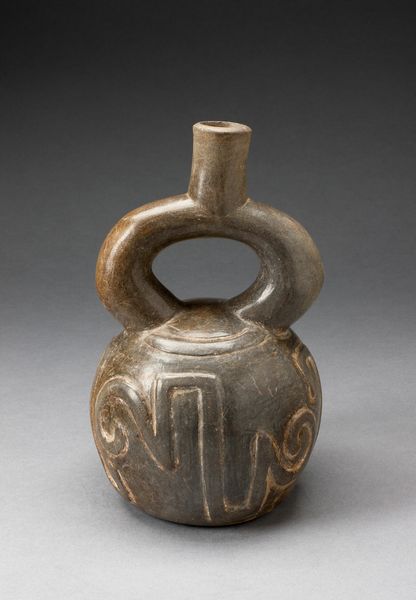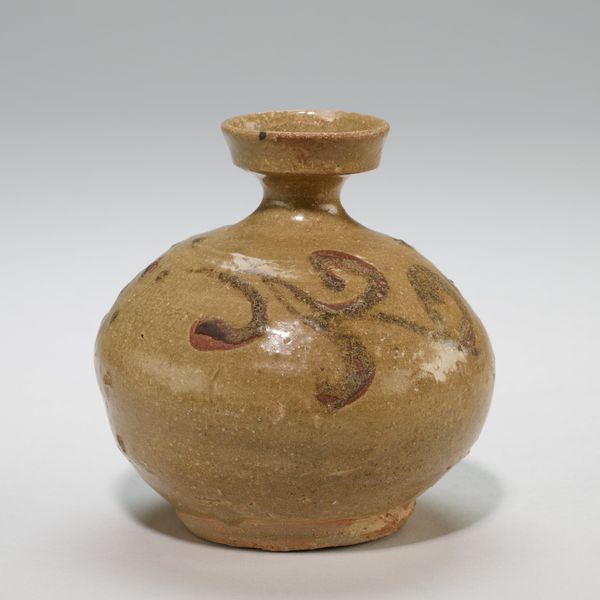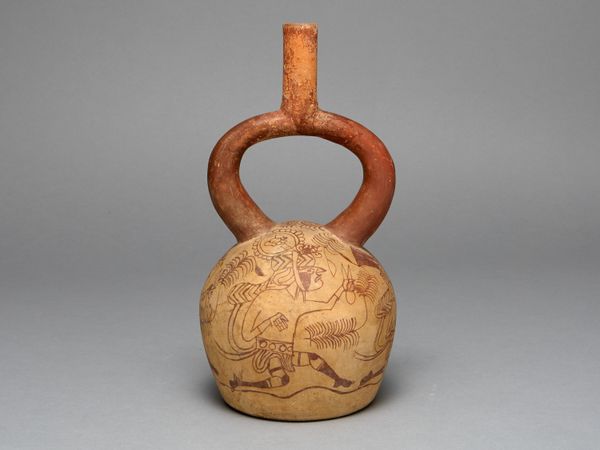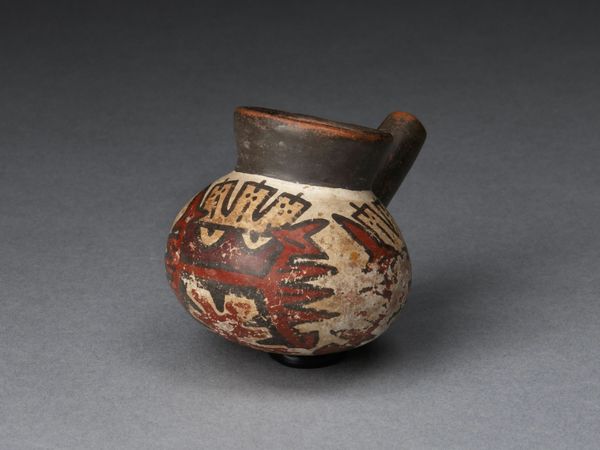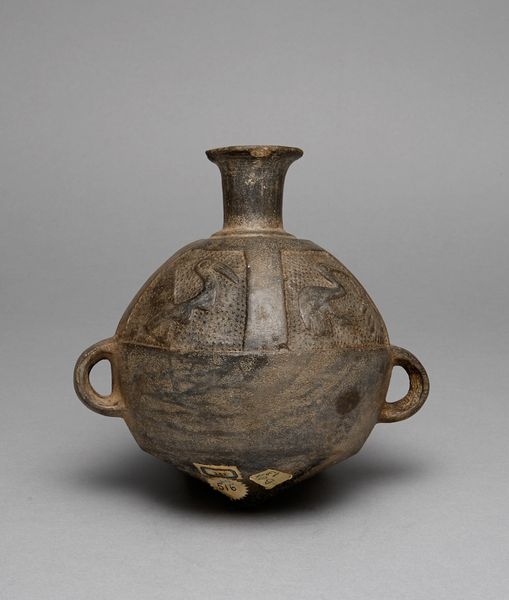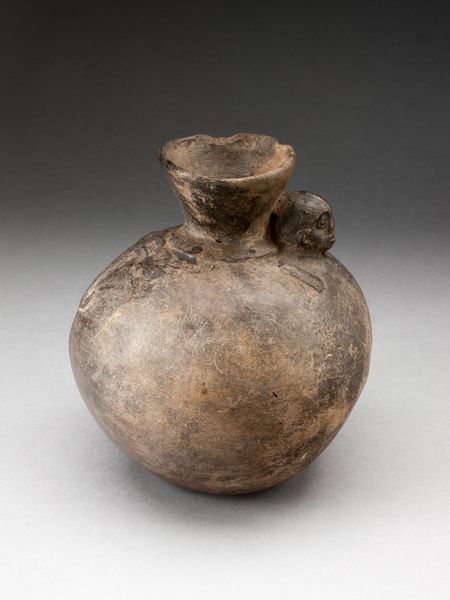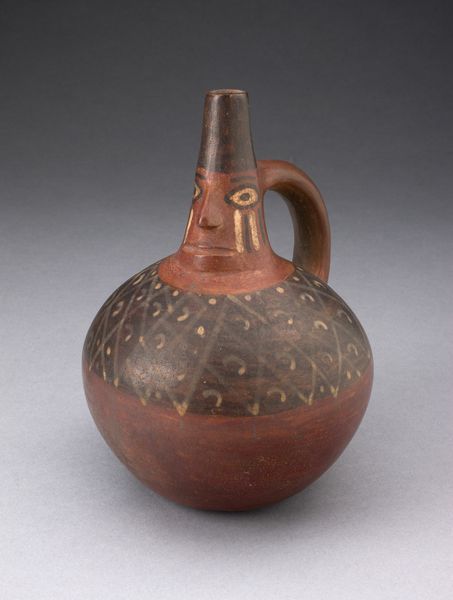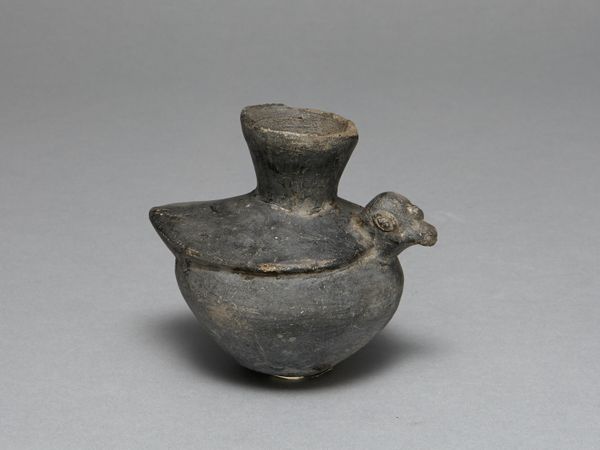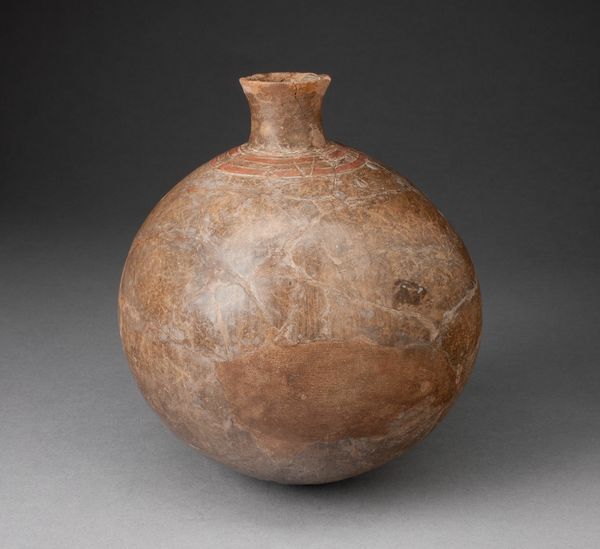
metal, gold
#
metal
#
gold
#
indigenous-americas
Dimensions: H. 5.1 cm (2 in.)
Copyright: Public Domain
These circular tweezers were made in ancient Chimú, a pre-Inca culture that flourished on the northern coast of present-day Peru. It seems likely it was made sometime between 900 and 1470 AD. Personal adornment was an important status symbol in Chimú society, and tweezers such as these were most probably used for removing unwanted facial hair. The fact that they are made of metal suggests they belonged to someone of high rank. It's important to remember that even seemingly mundane objects such as these can reveal insights into social structures, cultural practices, and the display of power. The study of metallurgy in ancient cultures, alongside archaeological and ethnohistorical records, helps to understand the status of the owner.
Comments
No comments
Be the first to comment and join the conversation on the ultimate creative platform.
